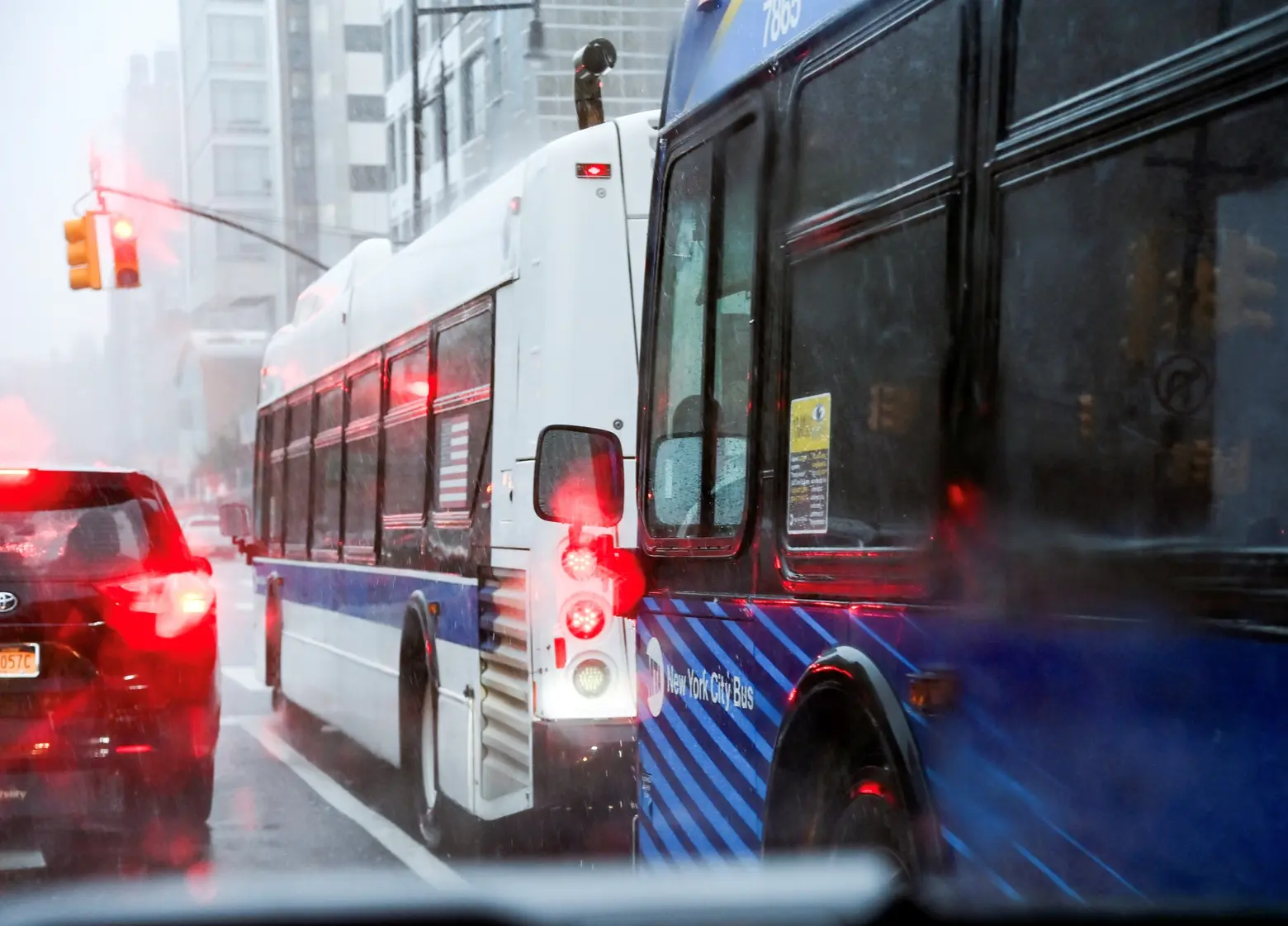NY comptroller audit finds gaps in MTA’s extreme weather preparedness

Credit: Marc A. Hermann / MTA on Flickr
A new audit by the state comptroller highlights safety weaknesses in the Metropolitan Transportation Authority’s extreme weather preparedness. In an audit released Thursday, New York Comptroller Thomas P. DiNapoli alleges that inspections and maintenance of flood protection equipment, particularly in the MTA’s Bridges & Tunnels and bus operations, are not always on schedule and that protocols for responding to extreme weather events like flooding and tornadoes are insufficient.
The audit, covering the period from April 2009 through July 2023, focused particularly on the MTA’s response to Superstorm Sandy in October 2012, which caused approximately $5 billion in damages and extensive coastal flooding.
DiNapoli’s office found that, despite the MTA’s investments in capital projects to protect against future weather events, the agency has not conducted a systemwide risk assessment to identify potential vulnerabilities to transportation infrastructure, as recommended.
Of the nine capital projects reviewed in the audit, five exceeded their original contract award amounts, three were under budget, and one remained within the original budget. For those nine projects, six were substantially completed late, two were completed on schedule, and one was completed ahead of schedule.
The audit also revealed gaps in inspections at both Bridges & Tunnels and in bus operations. At two B&T facilities, the audit found that no inspections of flood-proof doors had been conducted as requested, and identified multiple broken gasket seals.
Further, previously identified issues, such as cracks in crash barriers for a portal flood gate, were left unaddressed, with subsequent reports showing further deterioration over time.
At four bus depots, records for only 59 of the 336 inspections required for snow fighters—large tracks used for snow removal—were provided.
Additionally, the audit found that bus depots failed to consistently issue weather alerts during extreme weather events, including a period of significant flooding in 2021.
DiNapoli outlined several key recommendations, urging the MTA to regularly update its systemwide risk assessment, monitor projects to ensure they stay within their original contract amounts, and consistently maintain and inspect equipment in a timely manner as required.
David Steckel, an MTA spokesperson, responded to the audit, highlighting the agency’s efforts to bolster safety since Superstorm Sandy.
“We are pleased that the comptrollers report recognizes the improvements that the MTA has made since Superstorm Sandy,” Steckel told Gothamist in an email statement.
“Over the past two decades the MTA has made significant enhancements to its emergency preparedness and response capabilities by implementing well-informed strategies and proactively mitigating the potential damage to its assets and systems from future extreme-weather events including a Climate Resiliency Roadmap that describes how the agency will adapt our systems to climate change over the next ten years.”
Steckel also cited the agency’s recent flood prevention efforts, including the installation of flood doors at the Hugh L. Carey and Queens Midtown tunnels and the strategic positioning of equipment to ensure a swift response to future weather events, as reported by Gothamist.
On January 17, the MTA will shut down the A train in the Rockaways for four months to repair viaducts and bridges damaged during Superstorm Sandy and protect the line from future extreme weather events.
RELATED:































